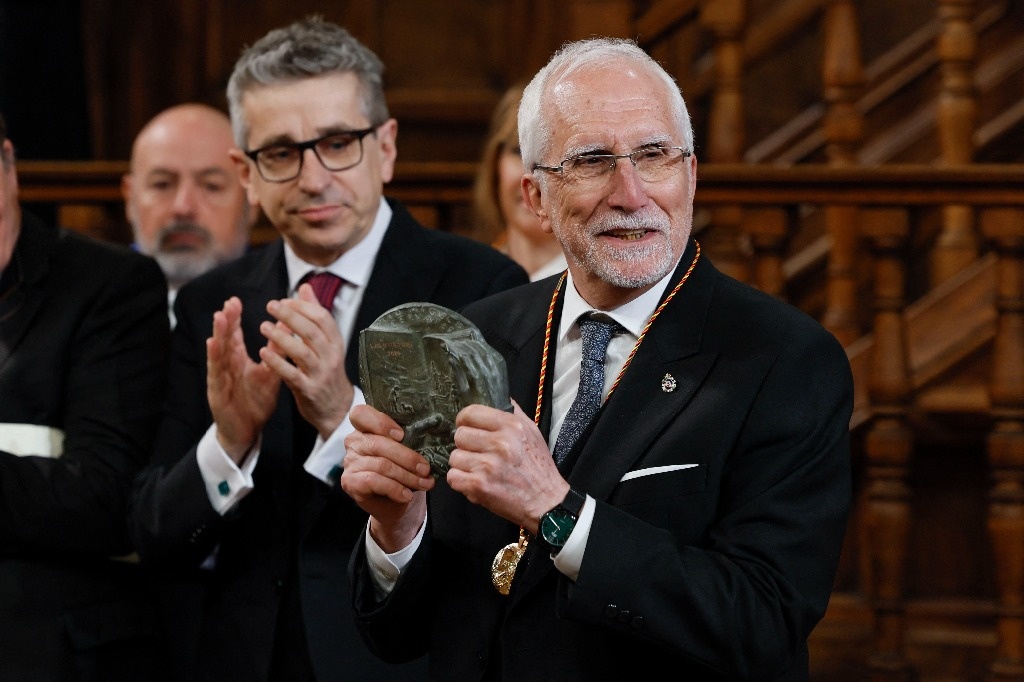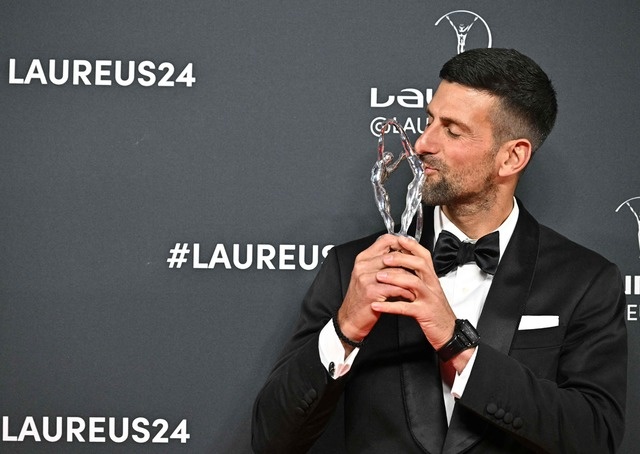Madrid. In the auditorium of the University of Alcalá de Henares, the writer Luis Mateo Díez, originally from León and one of the most important storytellers of recent decades, was awarded the Cervantes Prize, with which he is established as a living classic of literature in Spanish. In his reception speech, the novelist and short story writer recognized – after reviewing his great references in literature and in another of his great sources of inspiration and hobbies, cinema – that he was a postwar child
which created a atmosphere of sadness and desolation
which led him to become a writer.
Mateo Díez, born in the Leonese town of Villablino in 1942, is one of the academics of the Royal Spanish Academy. Among his most notable books are The fountain of age, The ruin of heaven, head on fire y The fruits of the fogin which he talks about the daily reality of rural Spain, from which he himself comes, to witness how it fades over the years.
Mateo Díez went back in time to explain his present: Childhood, said Cesare Pavese, is the mythical time of man, what corresponds to each one of that original age in which everything comes to us and happens for the first time, the amazement of the light in innocence, feelings and emotions that will mark us indelibly, the heritage of the primal, the experience of the primordial
.
Hence he remembered that “I was a post-war child and the burden of that historical time details in my memory atmospheres and events that cloud it, so that a childhood in those years can distill an attachment of sadness and desolation, which so many losses suppose between families and neighborhoods and, however, the geography and country of my childhood were not completely clouded, I suppose because the luck of affections overcame the misfortune of so many misfortunes.
My destiny as a writer, nothing less, you see how easily life guided and dazzled me, with the primitive substratum of a fascination and enchantment, in such a way that listening and writing united what reading and telling had as an incentive and incentive. . A wonderful entertainment that would give reason for that irremediable destiny, if you consider the vicissitudes in which I find myself right now, trying to realize where the narrator who speaks to you comes from and who, without remedy, came to understand as a counterpart as soon as he acquired the logical distance, what Rilke affirms that childhood is the lost homeland of man.
The disturbing and endearing Don Quixote
As is customary in the Cervantes Prize reception speeches, the winner made reference to Don Quijote of La Mancha: The book that I listened to with greatest delight and benefit was one of those appropriate versions of our classics. I can remember very well the morning of his first reading, when in the winter of the Valley the snowfall stole our recess and the incipient knight came from much further away than the flakes that disturbed the windows of the school, the plain of a withered sun or the horizons that fostered the impiety of alienation for the knights who were going to right wrongs like someone leaving home to remedy the world… Don Quixote came to stay with me as a hero no less disturbing than endearing, of which quite some time later, when the incipient narrator that I would become, sometimes ashamed heir of that child writer who, luckily, never wrote an essay on the vituperable life of flies, I began to know that he was not a hero, that the knight with the sad figure had another appearance as a figure exalted in the glory of the one who had created him, and that he was more of an antihero, a repeat loser, a term that I never liked, but which is still significant. , doomed to perditions and failures, no matter how dreamy they were forged
.
And from that conclusion, Mateo Díez little by little understood his own job: Telling life was my aspiration, I suppose that the revelation of so many stories and telling voices, closely linked to those of the great masters of fiction, to what knowledge means in the heritage of the literary imagination, shaped and fertilized the long learning process in which I, patiently, guarded the novelist’s weapons, wrote with tenacity and rigor looking for my models and, in any case, trying to feel like heir to how much I thought it would enrich me when it came into my hands.
.
And so, after weaving together stories and literary references throughout his life, Mateo Díez returned to that postwar childhood to complete what was perhaps one of the most important speeches of his life: I remember my characters again, who sometimes almost become personifications, and I recover the image of that winter hero of my childhood who is in the basement of all of them, who survives in the mirror of their struggle for life and chimera, what the imagination seeks so that reality, and its precariousness and affronts, does not culminate in defeat, even if it is in the experience of death when the knight of the sad figure covers the limit of his exploits, from the trance of a redemptive madness to the chimera and, finally, to the sanity that exalts and redeems the disturbed existence of the one who left home to save the world
.
#Telling #life #aspiration #Mateo #Díez
– 2024-04-25 03:30:53


